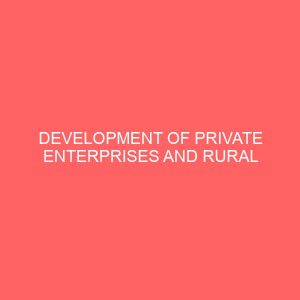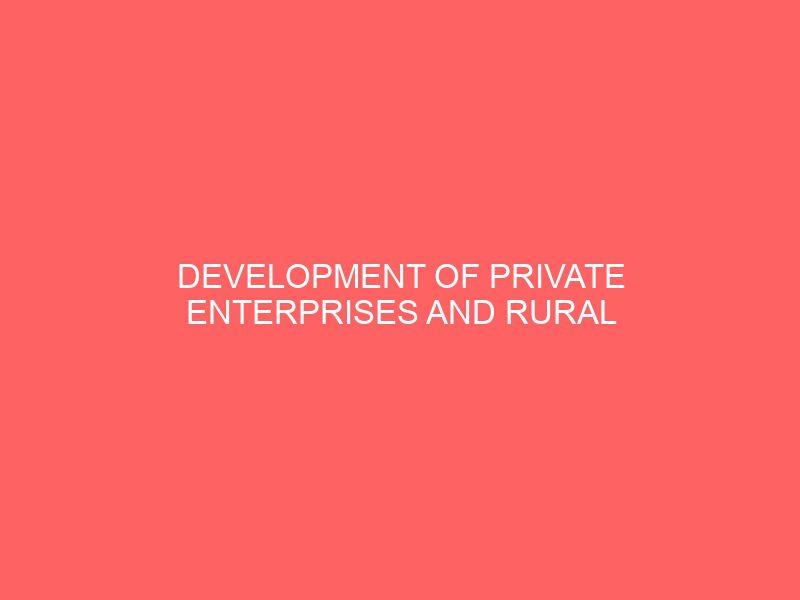Description
CHAPTER ONE INTRODUCTION 1.1 Background to the Study In mixed economies like Nigeria, there exist two sectors in the economy. These sectors in spite of the difference in their nomenclature, goals, mission and vision, do work hand in hand to maintain a healthy economy. These sectors include public and private sectors. The public sector includes all those agencies, organizations, institutions, etc. that are under government management and control. On the other hand, the private sector includes establishments, businesses, agencies, etc that are in the hands of individuals or groups. In other words, Henry (2012:55) opines that the public sector is composed of governments, government agencies and government corporations. Implicit here is the fact that the public sector is directly under the management and control of government. The author goes further to maintain that the private sector includes profit-seeking companies. This underlines the fact that the private sector is profit-oriented; everything they do, they do in a bid to make profits on invested income. Similarly, in the words of Marchetti (2007:6), the rural private sector includes a whole continuum of economic agents, ranging from subsistence or small holder farmers, rural wage-earners, livestock herders, small-scale traders and micro entrepreneurs; to medium-sized, local private operators such as input suppliers, microfinance institutions, transporters, agroprocessors, commodity brokers and traders; to other, bigger market players that may or may not reside in rural areas, including local or international commodity buyers and sellers, multinational seed or fertilizer companies, commercial banks, agribusiness firms and supermarkets. The author goes further to state that associations of farmers, herders, water users or traders also constitute an important part of the private sector. Notably, a vast majority of Nigeria?s poorest people lives in villages and these villages are in a state of neglect and underdevelopment with impoverished people. The problems of hunger, ignorance, ill health, high mortality and illiteracy are most acute in rural areas. This is not only because of shortage of material resources but also because of defects in our planning process and investment pattern. Nigeria has the potential to meet these challenges in rural areas. However, the efforts of Governments may not be adequate to provide basic services to its citizens. It is being increasingly recognized that progress and welfare of a society is not only the responsibility of the Government alone, but many more stakeholders need to be involved to attain the development goal (Save the Children Sweden, 2007). Nevertheless, the private sector has a pivotal role to play in ensuring that private investment flows to those







